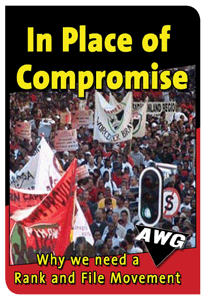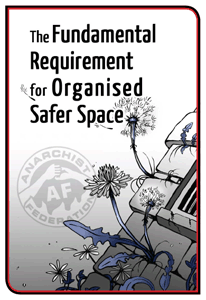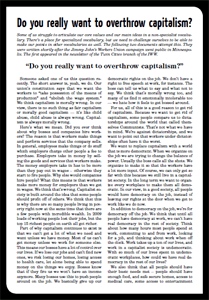 Author: Anarchist Workers Group
Author: Anarchist Workers Group
File size: 936 KB
The most striking feature of recent industrial struggles has been the way in which the ruling class has attempted, and largely succeeded, in using the power of the bureaucracies within the trade unions to its own advantage. The militant Syndicalist miners in their pamphlet ‘The Miners Next step’ urged that:
“The old policy of identity of interests between employers and ourselves be abolished and a policy of open hostility be installed”.
But the trade union leadership will not do this for us. We must do it for ourselves. This pamphlet outlines how.

 Author: Direct Action Movement
Author: Direct Action Movement
![[Leaflet] The Importance of a Liberatory Process: a Critique of Fetishized Militancy](http://web.archive.org./web/20131024124338im_/http://zabalazabooks.files.wordpress.com/2013/07/leaflet_the_importance_of_a_liberatory_process_scott_nappalos.gif?w=640) Author: Scott Nappalos
Author: Scott Nappalos Author: Anarchist Federation
Author: Anarchist Federation Author: Nate Hawthorne
Author: Nate Hawthorne Author: Two Toronto Members of Common Cause
Author: Two Toronto Members of Common Cause Author: Tom Brown
Author: Tom Brown